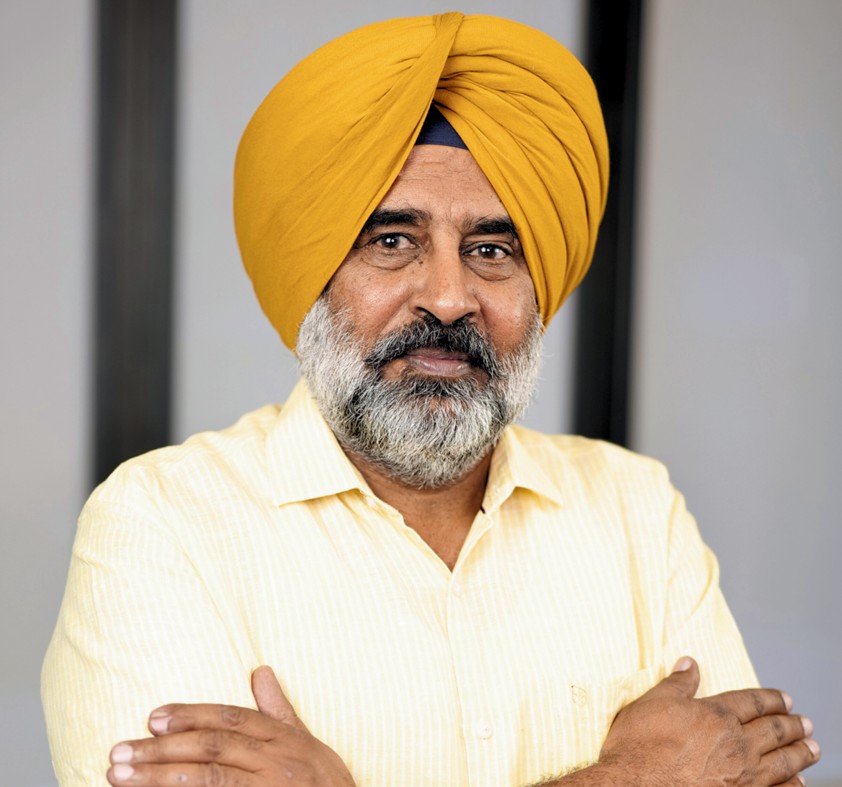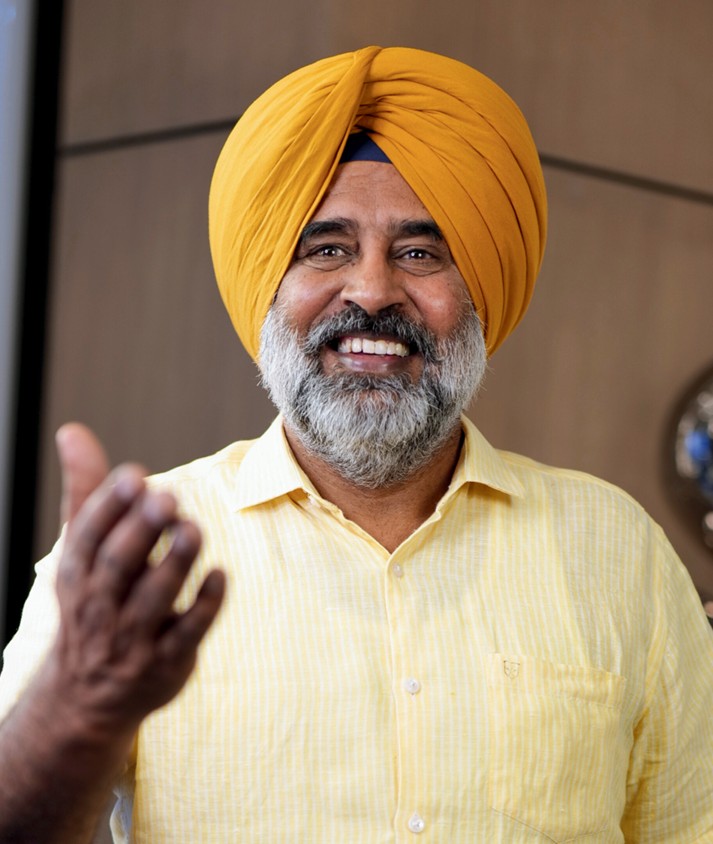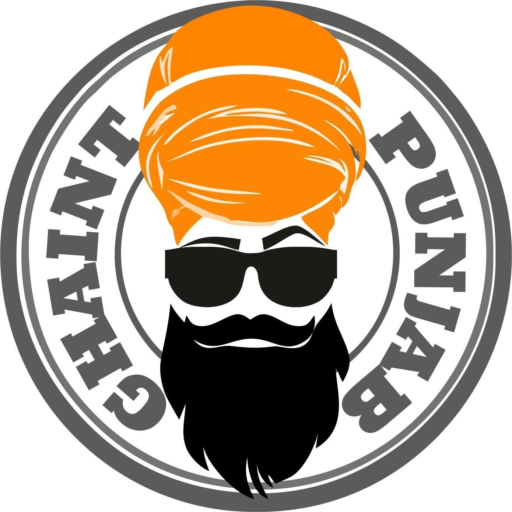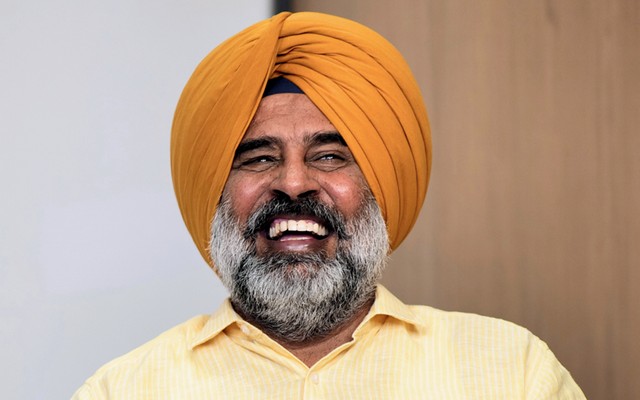There are leaders who are born, and then there are those forged in the fire of grit, discipline, and deep-rooted values. Pargat Singh, once India’s wall on the hockey field, is now one of Punjab’s most respected and outspoken political voices.
As a former Olympian, ex-Director of Sports, top cop, and now MLA, Singh’s journey is more than just the story of a man—it’s a chronicle of Punjab’s soul navigating modern challenges.
“This generation of Punjabi youth needs direction — not labels.”
He was never just a player on the field—he was the thinking man’s defender. Someone who knew that true strength lies not in muscle, but in mastering your mind. In this candid, no-holds-barred conversation with Varkaa Magazine, Singh opens up about politics, policing, Punjab’s youth, and why he still believes this land of five rivers can roar again.
“I studied the mistakes of others—and that’s how I became a complete player.”
Varkaa: What was that one skill set that made you one of the most celebrated defenders in your hockey team?
S. Pargat Singh: I come from a typical village where hockey was everything—whether people played or not, they followed the sport like a religion. I started as a forward, played goalkeeper, and finally found my footing as a defender. Back then, the idea of a “total player” had just begun. Coaches like Balkrishan Singh and Sukhbir Grewal molded us that way. I was able to analyze opponents, learn from their mistakes, and adapt. That became my biggest strength.
“Against Pakistan, I never felt pressure. I enjoyed it.”
Varkaa: How would you describe the tension of playing against Pakistan?
S. Pargat Singh: Media builds that pressure. For me, pressure situations made me stronger. I never crumbled—I rose. That attitude came from early grooming. Tough matches like those fuelled me. “Sports is Punjab’s strongest weapon against drugs.”

Varkaa: You’ve seen hockey from the ground to the ministry level. What’s broken in our system?
S. Pargat Singh: Though I was Sports Minister only briefly, I was Director of Sports earlier. Though I was Sports Minister only briefly, I was Director of Sports earlier. I observed how the world operates and implemented those insights. Today, 8–10 boys from Punjab are on the national team. Sports isn’t just a career—it’s our strongest antidote to drugs. Punjabis are naturally aggressive, and that energy needs direction. Sports can provide that.
“Policing taught me that healing a criminal is tougher than catching one.”
Varkaa: Did your police tenure change your mindset?
S. Pargat Singh: Absolutely. Real policing showed me how people already under pressure are treated poorly when they approach the system. That’s a flaw. Our society needs cultural reform. We must lead with wisdom, not fear.
“The day I feel weak, I’ll call for help — but until then, I follow my own ethics.”
“When you make the police your political army, you ruin both.”
Varkaa: What’s your take on corruption within the police?
S. Pargat Singh: I’ve said this before: Punjab should never become a police state. Use force against criminals, not civilians. Some use the uniform to please political bosses, and that’s dangerous. As decision-makers, we must be God-fearing, not power-drunk. “I didn’t want to enter politics—destiny pulled me in.”
Varkaa: What was one thing you were sure about when you joined politics?
S. Pargat Singh: Frankly, I didn’t want to. Sukhbir Badal insisted. But once I entered, I knew I had to speak up. Sadly, our internal democracy is dying. When that collapses, everything from society to governance suffers. “We’re failing our students by not aligning education with industry.”
Varkaa: What major issues do you foresee for the public?
S. Pargat Singh: There’s a disconnect between education and industry. Students are jobless; industrialists want talent. The education system must evolve. Law and order is another issue. And as an agricultural state, Punjab needs awareness programs to modernize farming.
“It’s not just about giving food to people, but making them capable enough to earn it. I was clear—no land mafia, no goons around me.”
Varkaa: You’re known for your integrity. What keeps you grounded?
S. Pargat Singh: When I joined, some so-called pehlwans came to “guard” me. I told them, I live by ethics, and if I ever feel unsafe, I’ll call you. Till then, stay away. People now know—I do the right thing, and I allow no wrong. “Awaz-e-Punjab was never a party —it was a movement.”
Varkaa: You launched a political front with Navjot Sidhu and the Bains brothers. What happened?
Awaz-e-Punjab was never a political party—it was a front to voice Punjab’s concerns. But soon, Bains brothers aligned with AAP, and I joined Congress. Intent was pure, but timing didn’t work. “Labeling Sikh youth as terrorists is an old, dangerous game.”
Varkaa: Sikh youth are still being labeled unfairly. What’s your take?
S. Pargat Singh: This land has always bred warriors, not terrorists. Governments have tried to break us, but we’ve spread across the globe. Our youth are frustrated because the gap between dreams and reality is widening—leading to mental health issues and drug addiction. We need research, not rhetoric. Unity and brotherhood are our greatest strengths.
“I won’t feed 3 crore people—but I’ll train them to feed themselves.”
Varkaa: What’s your manifesto for the upcoming elections?
S. Pargat Singh: My goal is to empower people through skill-building. Make them capable, not dependent. Yes, we need tough decisions. Whether it’s the police, politics, or bureaucracy— there are good and bad people. But everyone must work. “Success lies in brotherhood, not solo acts.”
Varkaa: A final message to our readers?
S. Pargat Singh: Cultural change, hard work, and unity—that’s what we need. Societies that work together thrive. No one can do it alone. We need cross-party efforts for real change. “No political plans in the family—I’ve passed the baton of freedom to my kids.”

Varkaa: Will your children enter politics?
S. Pargat Singh: No, my son is a civil engineer, and my daughter is an architect. They’ve chosen their own paths, and I respect that.
Interviewing S. Pargat Singh is like watching a live match—intense, unpredictable, and deeply human. His clarity is rare, and his boldness, rarer still. He isn’t just defending Punjab’s political field now—he’s strategizing for its future.


